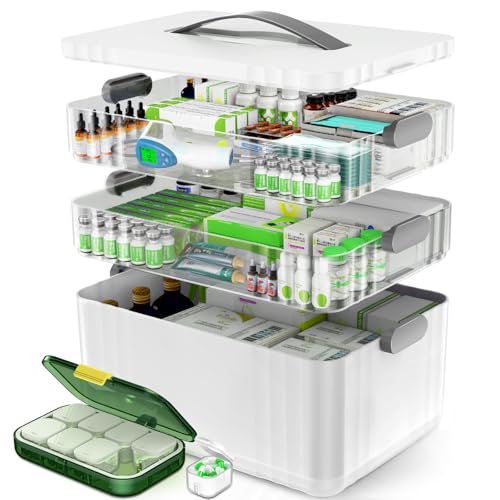Prioritize safety by packing all pharmaceuticals in carry-on bags, ensuring access during travel. Temperature fluctuations and handling techniques in cargo compartments can adversely affect the integrity of these items.
Check specific airline regulations and local laws regarding transportation of prescribed substances, as rules may vary significantly. Some airlines recommend keeping medication in original packaging to avoid confusion at security checkpoints, while others might explicitly state what substances must be declared.
Consider potential delays or lost belongings; carrying essential treatments will help manage unexpected circumstances. If traveling internationally, carry documentation from healthcare providers, detailing the necessity of your prescriptions to mitigate any potential legal issues upon arrival.
Storing Prescription Items in Baggage
It is advisable to avoid placing prescription items in your checked bags whenever possible. If you must store them this way, follow these guidelines:
- Secure items in their original containers with labels intact.
- Consider the temperature sensitivity; extreme heat or cold can affect potency.
- Ensure you carry any necessary documentation, like a doctor’s note or prescriptions, to avoid complications during security checks.
Preparing for Travel
Before travel, take precautionary measures:
- Pack an emergency supply in your carry-on to cover delays or lost baggage.
- Set reminders for dosages, especially if you are in a new time zone.
Security Regulations
Familiarize yourself with airline policies concerning prescription items:
- Check specific airline rules regarding the transport of pharmaceutical products.
- Be aware of international regulations if traveling abroad.
Understanding Airline Regulations on Medication in Checked Bags
Review airline policies before you travel, as regulations can differ significantly by carrier. Most airlines advise against placing prescriptions in the cargo compartment. This is primarily due to temperature fluctuations and possible damage during handling.
Temperature Sensitivity
Many pharmaceuticals require a stable environment. Exposing them to extreme temperatures may compromise their integrity. Consider packing vital items in a carry-on, where you have more control over environmental conditions.
Documentation
Always have the original prescription labels on bottles. In case of an inspection, this serves as proof of legitimacy. Keep a printed list of your pharmaceuticals, including generic names, dosages, and prescribing doctor’s information.
For pet owners, while planning your travels, ensure that arrangements are in place for your animal’s safety and containment. A resourceful guide is available on how to contain a dog without a high fence.
Potential Risks of Storing Medication in Checked Luggage
Storing pharmaceuticals in checked bags poses significant dangers. Exposure to fluctuating temperatures during transit can compromise the efficacy of temperature-sensitive prescriptions. Extreme heat or cold may alter compositions, rendering them ineffective.
Theft remains a major concern. Baggage often changes hands multiple times, increasing the likelihood of items being lost or stolen. Valuable medications may attract unwanted attention, raising the risk of theft.
Inadequate labeling can lead to confusion. If containers do not clearly indicate contents, airport security may confiscate items, causing delays in obtaining vital treatments at your destination.
Accessibility issues arise when pharmaceuticals are not packed in carry-ons. In the event of flight delays or baggage mishaps, accessing necessary treatments can become impossible, jeopardizing health.
Lastly, regulatory compliance is critical. Some jurisdictions require specific documentation for certain substances. Without proper papers, travelers might face legal challenges during inspections.
Best Practices for Packing Medication During Travel
Secure all pharmaceutical products in their original packaging, ensuring labels are visible. This aids in identification and can prevent issues at security checkpoints.
Utilize a labeled, waterproof container or a travel organizer specifically designed for pharmaceuticals. This protects against spills and moisture, which can compromise the integrity of the items.
Include a copy of your prescriptions and a note from your healthcare provider that outlines any necessary treatments, especially for injections or controlled substances. This documents your need for specific items and facilitates communication with authorities if necessary.
Store items in an interior pocket of your carry-on for easy accessibility. This minimizes the risk of temperature fluctuations or loss during transit.
Consider using temperature-control solutions, such as insulated pouches or gel packs, particularly for items that require refrigeration. Be aware of the climate of your destination and adjust your packing strategy accordingly.
Review regulations of airlines and countries regarding transportation of healthcare products. This knowledge can prevent unexpected confiscation and ensure compliance with local laws.
Traveling with additional supplies, such as extra doses or a few days’ worth more than you need, can be prudent in case of delays or other unexpected situations.
For those needing fitness equipment for maintaining health while away, discovering the best punching bag for home gym can be an excellent addition to your routine.
Always check expiration dates before you pack items, discarding anything that may not be viable during your trip.
What to Do if Your Medication Gets Lost or Damaged
Immediately report any loss or damage of your pharmaceutical items to the airline staff. They can assist in locating the lost items through their tracking systems.
Document Everything
Keep records of your prescriptions and receipts. Take photos of the items before traveling, including labels and packaging. This information can expedite the process of replacing your belongings.
Contact Your Healthcare Provider
If replacement is necessary, reach out to your doctor. They can provide new prescriptions or recommendations for alternative treatments. It’s advisable to have their contact information easily accessible during travel.
For added peace of mind, consider storing essential items, such as a first aid kit or emergency contacts, in a separate accessible pouch. If you’ve prepared for various scenarios, such as how to handle carrying your essentials securely, you might also want to know the best way to cover an umbrella for unexpected weather.








